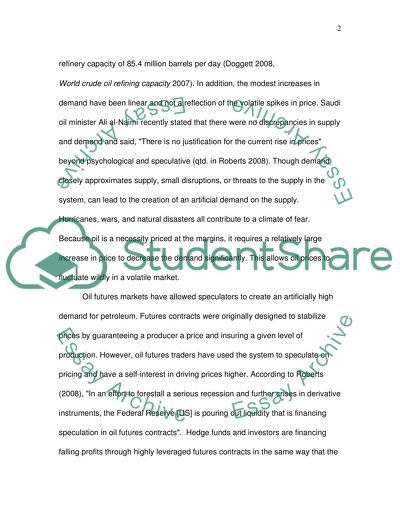Cite this document
(“Oil Price Shock: Cause and Effect Essay Example | Topics and Well Written Essays - 1250 words”, n.d.)
Oil Price Shock: Cause and Effect Essay Example | Topics and Well Written Essays - 1250 words. Retrieved from https://studentshare.org/macro-microeconomics/1516813-the-cause-and-effect-of-rising-oil-prices
Oil Price Shock: Cause and Effect Essay Example | Topics and Well Written Essays - 1250 words. Retrieved from https://studentshare.org/macro-microeconomics/1516813-the-cause-and-effect-of-rising-oil-prices
(Oil Price Shock: Cause and Effect Essay Example | Topics and Well Written Essays - 1250 Words)
Oil Price Shock: Cause and Effect Essay Example | Topics and Well Written Essays - 1250 Words. https://studentshare.org/macro-microeconomics/1516813-the-cause-and-effect-of-rising-oil-prices.
Oil Price Shock: Cause and Effect Essay Example | Topics and Well Written Essays - 1250 Words. https://studentshare.org/macro-microeconomics/1516813-the-cause-and-effect-of-rising-oil-prices.
“Oil Price Shock: Cause and Effect Essay Example | Topics and Well Written Essays - 1250 Words”, n.d. https://studentshare.org/macro-microeconomics/1516813-the-cause-and-effect-of-rising-oil-prices.


